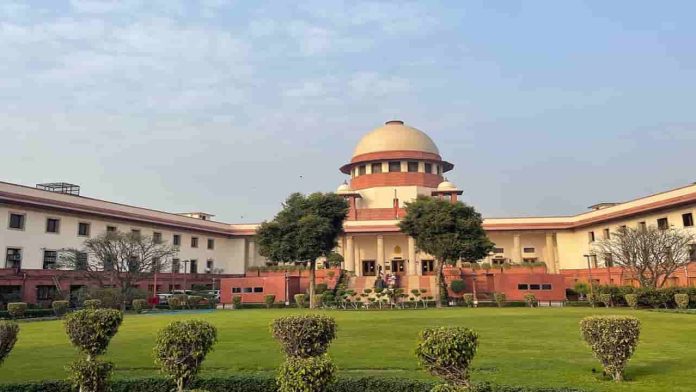The Muslim personal law board of India has moved an impleadment application in a plea filed by Advocate Ashwini Kumar Upadhyay before the Supreme Court against the provisions of the Places of Worship Act.
The application states that the Act is beneficial as it ensures normativity and positive law in the society and peace in society.
The plea on the other hand states that the Places of Worship Act takes has taken away the power of the Court and Religious Sects to restore their places of Worship.
The plea challenges Sections 2, 3 and 4 Places of Worship (Special Provisions) Act, 1991 on the grounds of Article 14, 15, 21, 25, 26 and 29 of the Constitution.
The present impleadment application alleges that Upadhyay being a member of a elite party which holds majority can take the legislative route.
The application also alleges that Upadhyay has been involved in hate speech in August 2021 where he spoke and raised divisive slogans at Jantar Mantar in New Delhi.
The application these speeches were sufficient to disentitle him to invoke the jurisdiction of the Court in the instant matter or PIL jurisdiction generally”.
“The application clearly states that the motive of the plea by Upadhyay is a political game plan.
It alleges that the party has a malafide design to keep alive the communal and religiously sensitive issues in the country to serve the political interest of certain individuals and organisations.”
The plea also refers to a judgment of the Supreme Court in case of M. Ismail Faruqui (Dr) v. Union of India where the court held that any religious group has no vested right to a religious place and keeping it away from State intervention.
An impleadment request has also been moved by Jamiat Ulama-i-Hind has in this writ petition filed by Upadhyay.


